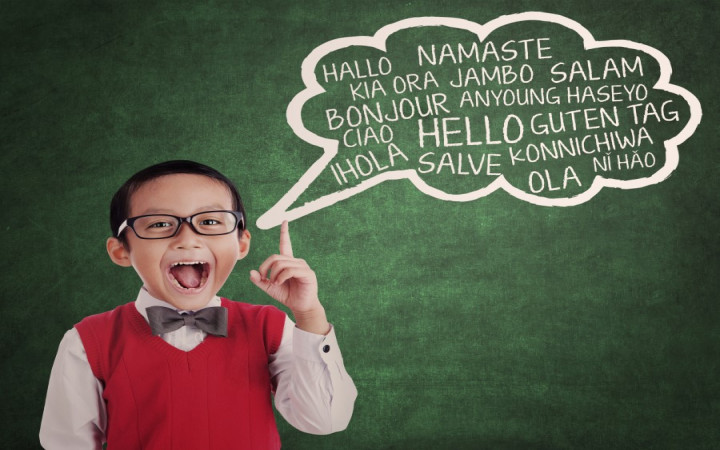Today’s Wonder of the Day was inspired by Irene. Irene Wonders, “I wonder how language started.” Thanks for WONDERing with us, Irene!
How many languages do you speak? If you're a student in the United States, the answer might be just one: English. Of course, many U.S. students speak two languages, such as English and Spanish, while other students may speak a few different languages.
You're probably familiar with the foreign languages spoken in many countries. For example, if you lived in France, you would speak what? French, of course! What about Germany? German, naturally! But what about the many other nations around the world? Just how many languages are there, and why are there so many?
Linguists, experts who study language, don't have all the answers. Human beings have been communicating with spoken languages since their earliest days on Earth. Some people theorize that everyone once spoke a common language. Whether that's true or not can't be confirmed, because there simply aren't reliable historical accounts that go back in time to the earliest days of language.
Linguists can only make educated guesses about how the earliest humans began to use spoken language. Perhaps they imitated sounds they heard around them in nature. Or maybe they developed basic sounds to communicate the simplest ideas, such as how to use tools and obtain necessary resources, such as food, water, shelter, and fire.
All of the people living in a certain area would tend to develop a common set of words for thoughts and ideas they wanted to communicate. People in other areas of the world, though, with different needs and backgrounds, would likely develop other words. In this way, different languages might have developed independently all around the world.
Over time, groups of people would meet and merge. At other times, one group of people would conquer another. During these times of upheaval, great changes could take place within languages, with some languages dying out while others grew or changed to a new language altogether.
Linguists also cannot tell us exactly how many languages there are in the world today. Part of the reason is that some areas of the world remain unexplored to the point of knowing the exact range of languages spoken in any specific area. It's also more complicated to count languages than you might guess.
For example, many languages have many different dialects within them. These dialects may be very similar to the base language with only minor differences based upon local customs and usage. On the other hand, some dialects can be different to the point of seeming like an entirely separate language. Linguists often disagree about exactly how to count languages when these issues arise.
Despite the issues with defining and counting languages, linguists now believe there might be close to 7,000 distinct languages spoken around the world. Where in the world are all these languages spoken? Linguists agree that they're not spread uniformly around the world.
For example, only about 230 languages are spoken in Europe, whereas over 2,000 languages are spoken across Asia. One particularly-diverse area is Papua-New Guinea, where a population of about 4 million people speaks as many as 832 different languages!
Could you imagine learning so many languages? Most people struggle to learn a second language in addition to their primary language. Others, though, have learned to master many different languages. For example, hyperpolyglots are people who study to learn large numbers of languages.
Studies of hyperpolyglots around the world reveal people who use up to 14 languages on a daily basis as a translator to those who have a working knowledge of 60 or more languages. How many languages do you think you could learn if you set your mind to it?




